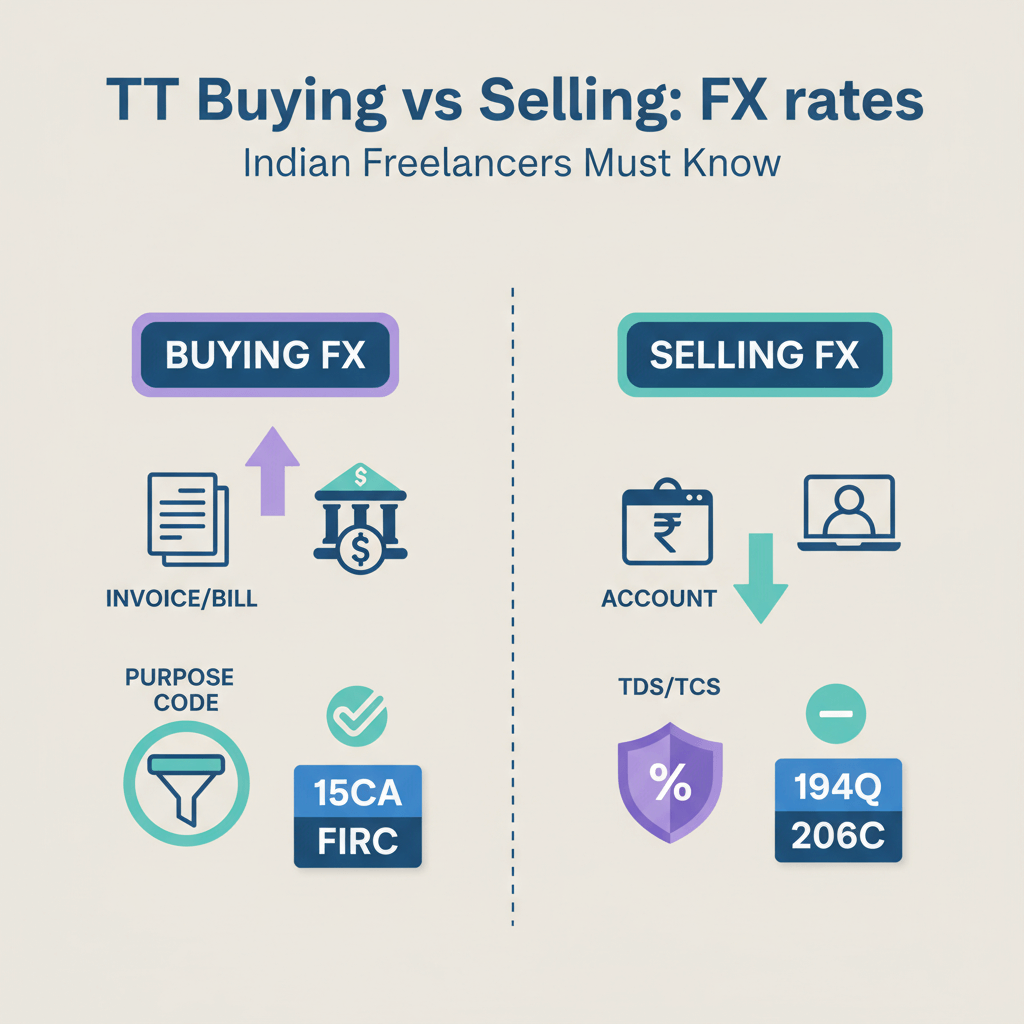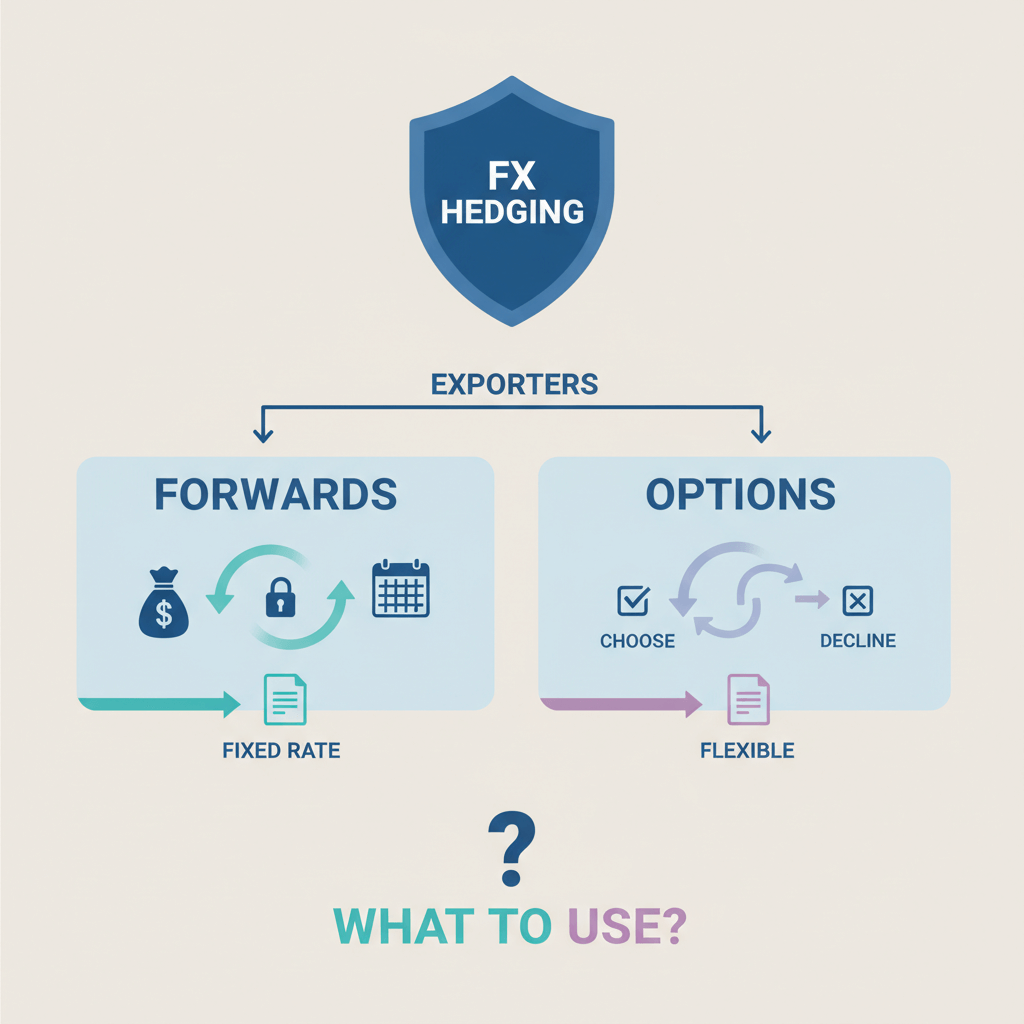You must have got a straight answer to this- it’ll take “2–5 business days.”
That’s only half the truth. The actual time it takes for an international wire transfer depends on far more than just the sender and recipient banks.
There are multiple friction points that can slow things down. It can be compliance checks (like Form A2 or FIRA), documentation delays, intermediary banks, and even how your forex rates are booked.
Some transfers clear in 1–2 days. Others get stuck for over a week.
In this post, we break down exactly what influences international wire timelines, how to avoid common slowdowns, and what’s in your hand to speed things up.
A little proof of what happens in reality:
Search Quora or Reddit and you’ll find dozens of stories.
Client payments stuck in compliance checks, business transfers held up for a simple document, etc.
These aren’t one-off cases. They’re common experiences for Indian freelancers, founders, and exporters dealing with outdated banking systems and unclear timelines.
Here’s what we here all the time:
"Payment was sent 4 days ago, still not credited. Is this normal?"
“The bank is asking for a document I already submitted.”
"Can a wire transfer be reversed or get lost in transit?"
"Bank says 'pending compliance check, how long does that take?"
How long does an international wire transfer take?
On average, international money transfers take between 1 to 5 business days to complete.
However, if you're sending or receiving money in India, the timelines vary slightly depending on the direction of the transfer.
Here’s a quick breakdown:
How Long It Takes to Receive Money in India?
Most inward remittances (especially via SWIFT) take 1–3 business days.
But delays can happen if:
• The remitter uses a small or local bank that doesn’t directly connect to SWIFT
• Intermediary banks charge extra time or fees
• The amount is large and triggers a compliance review
• Required documents (like purpose code, KYC, FIRA) are missing or unclear
Note: Banks in India are required to follow FEMA guidelines. So, any incoming foreign transfer may be held back until a valid “purpose code” is submitted.
How Long It Takes to Sending Money from India Abroad
Sending from India is often slower than receiving. Expect 2–4 business days at minimum.
Here’s why it takes longer:
• You need to fill Form A2 and sometimes upload a declaration
• The bank has to vet the reason under LRS (Liberalised Remittance Scheme)
• You might need your CA to certify the transaction if it’s for business
• Currency booking and daily forex limits can cause processing delays
And even after your bank approves the transfer, it may take another 1–2 days for the receiving bank to actually credit the funds.
Wire Transfer Flow: From Sender to Receiver
When you send or receive money internationally, the transaction doesn’t just jump from one bank account to another. It passes through a chain of systems that each take time. Any one of these steps can cause a delay.
Here’s what’s actually happens:
1. The Sender’s Bank Initiates the Transfer
Once the sender submits the wire request (either online or at a bank branch), the bank:
o Validates the transfer details: beneficiary name, account number, SWIFT/BIC code, transfer amount, and currency
o Checks internal policies (e.g., daily limits, sanctions, KYC validity)
o Applies relevant fees
o Debits the sender’s account
Imp: This initial step can take from a few minutes to a full business day, depending on the bank and transfer cut-off times.
2. The Intermediary (Correspondent) Bank(s) Process the Funds
If the sender’s bank and the recipient’s bank do not have a direct banking relationship, they use one or more “correspondent” or intermediary banks.
These middle banks handle currency routing, foreign exchange conversion (if required), and SWIFT messaging.
Imp: Each intermediary can introduce a delay of 0.5 to 2 days. Especially if it's a smaller or international routing.
They also deduct intermediary charges from the transfer amount.
3. The Receiving Bank Receives and Processes the Funds
Once the funds arrive, the recipient’s bank:
o Matches the incoming funds with the beneficiary account
o Validates the sender’s details and purpose
o Credits the money after internal approval
Imp: Some banks credit the account instantly. Others wait for compliance checks or confirmation from SWIFT.
4. Local Regulatory Checks (especially in India)
In India, the Reserve Bank of India (RBI) and FEMA regulations require:
• Purpose Code Declaration — why the funds are being sent/received (e.g., software exports, freelancing, consulting)
• KYC validation for both sender and receiver
• Form A2 submission if sending funds abroad
• FIRA (Foreign Inward Remittance Advice) or AD bank confirmation for incoming foreign money
Missing or unclear documentation here can delay transfers by 2–5 business days.
Imp: Some banks pause transactions and request supporting documents like invoices, agreements, or PAN cards.
5. Forex Conversion + Documentation Clearance
If the transaction involves converting from one currency to another (e.g., USD to INR):
• Forex rates are applied either at:
o The sender’s end (if amount is already converted), or
o The recipient’s end (most common in India)
• Banks check if the rate was pre-booked or to be applied at spot rate
• If you're a business, this may tie in with your hedging contracts or bank forex limit
Imp: Forex conversion often happens same day, but clearance may be delayed if pricing is disputed or regulatory cap is breached.
Why International Wire Transfers Get Delayed?
Even a small error, like a typo in the SWIFT code or mismatched beneficiary name, can delay the entire chain.
And unlike local transfers, there's no single system managing this from start to end. SWIFT is just a messaging system, not a clearinghouse. That’s why:
• You can't "cancel" or "reverse" a wire instantly
• Banks can't always give you real-time updates
• Delays may happen with no one taking direct accountability
The delays mentioned above don’t just happen randomly. There are some most common causes due to which you can face delays in transfer.
1. Bank holidays and cut-off times
Banks only process wire transfers during business hours on working days. If a transfer is initiated on a Friday afternoon, and there’s a holiday on Monday in either country, the payment doesn’t get processed until Tuesday or Wednesday.
In India, long weekends, public holidays, and quarter-end closures routinely delay both outgoing and incoming wires. To reduce friction, initiate transfers early in the week and before the bank’s daily cut-off time.
2. Compliance and fraud checks
All international wires are subject to anti-money laundering (AML) and risk checks at both the sending and receiving banks. Indian banks routinely hold foreign transfers for review if the amount is large, the beneficiary is new, or the purpose isn’t clearly declared.
These checks are standard. Funds are not released until the transaction passes through the bank’s internal compliance filters.
3. Incorrect or mismatched payment details
Errors in account numbers, SWIFT/BIC codes, or beneficiary names result in delayed or rejected transfers. In India, banks also verify whether the incoming payment aligns with the type of account. Business payments sent to personal savings accounts are often blocked or flagged.
Transfers are delayed or reversed if the payment details don’t match banking and compliance rules.
4. Currency conversion and forex processing
When a transfer involves currency conversion, such as USD to INR — the recipient’s bank applies the applicable forex rate and clears the transaction through its internal forex desk. This step can delay final credit by 1 to 2 business days, especially for high-value transfers.
In India, banks do not credit foreign currency directly. Funds are converted into INR after the forex markup is applied, and all internal checks are completed.
5. Intermediary bank routing and deductions
If the sender’s bank does not have a direct relationship with the recipient’s bank, the transfer is routed through intermediary or correspondent banks. Each intermediary processes the transaction in sequence, which adds 1 to 3 days to the total timeline.
These banks also deduct transfer fees in transit, unless the sender explicitly selects the "OUR" charge option during the wire. In most cases, the recipient receives a reduced amount because intermediary fees are applied automatically.
6. Missing documentation and regulatory compliance
Banks in India require clear documentation for both incoming and outgoing international wires. For inbound transfers, purpose codes must be declared and supporting documents like invoices, PAN cards, or agreements may be requested.
For outbound payments, Form A2 and a valid declaration of purpose are mandatory. Without these documents, Indian banks will not process the transaction.
7. Time zone differences and batch processing
Banks process international transfers in batches during local business hours. If a wire is sent late in the day in one country, it enters the recipient bank’s system only when their next processing window opens.
For example, a transfer initiated from India at 4:30 PM IST reaches US banks during early morning hours, which delays the start of processing until their business day begins.
Comparing Transfer Speeds Of International Wire Transfer Methods in India
Here are three common ways Indian businesses can initiate international wire transfers. Each comes with its own process, timeline, and paperwork requirements:
Karbon FX Wire Transfer- Lower Markup Guaranteed
Karbon offers international wire transfers through SWIFT for Indian exporters with clear pricing and no manual paperwork.
Most banks charge around ₹0.40 per USD as a markup on foreign exchange. Karbon gives you a better rate, starting at ₹0.30 per USD.
We Don’t Price Match, We Beat Your Current Rate
Karbon offers 30 to 50 percent off your existing markup when you switch, even if you're working with a non-partner bank.
Bottom Line
There’s no single answer to - How long does an international wire transfer take?
It could be 1 day. It could be 7.
If you're sending or receiving money in India, paperwork and compliance make it a little more layered.
But knowing how the system works, and preparing the right documentation, puts you in control.
FAQ’s on International wire transfer time
1. How long will international wire transfers take?
With Karbon Forex, in the case of outward remittances from India, it takes anywhere from 5-6 hours at minimum to 24 hours at the maximum.
A wire transfer stands as the widely preferred method for transferring funds between accounts across countries. It constitutes an electronic means of money transfer known for its security, speed, and convenience.
Non-resident Indians (NRIs) extensively utilize wire transfers to send money to India. The motivations behind these transfers range from urgent needs, such as assisting family members, and covering medical expenses, to planning investments.
2. How long does a domestic wire transfer take in India?
When transferring money within the same institution, it usually takes 24 hours or even instantly. In cases involving retailers or businesses, the worst-case scenario is approximately 3 days.
Occasionally, delays may occur due to form-filling errors, public holidays, or location differences, extending the processing time. However, for substantial checks or deposits, the process can take as much as 10 days.
3. Can a wire transfer take 24 hours?
Yes. With Karbon Forex, we ensure outward remittances from India take place within 5-6 hours. It may take up to 24 hours in some rare cases.
4. How long does it take for a SWIFT transfer to go through?
Traditional bank-to-bank transfers take about 3-5 business days.
5. What is the minimum time for a wire transfer?
For inward or outward remittances from India, it may take at least 5-6 hours to process an international wire transfer.











